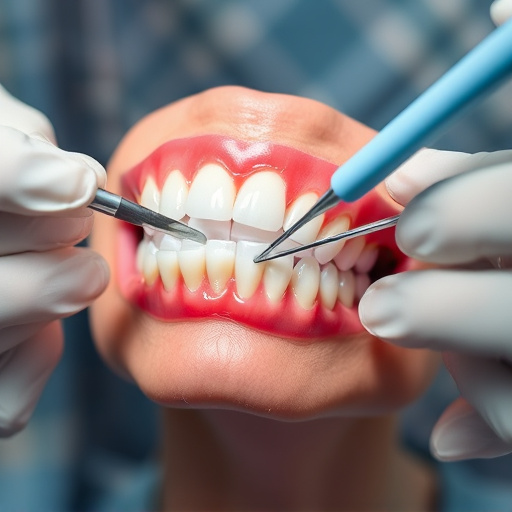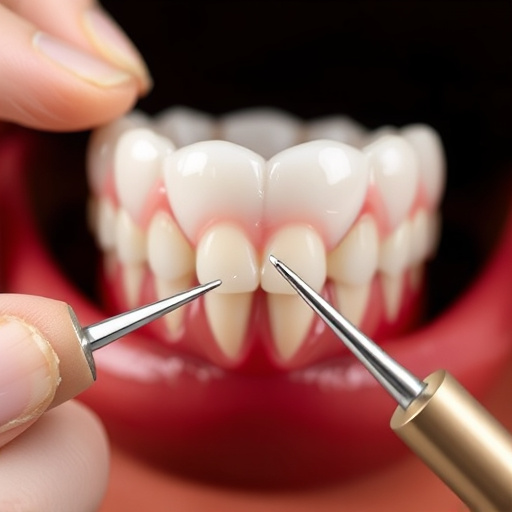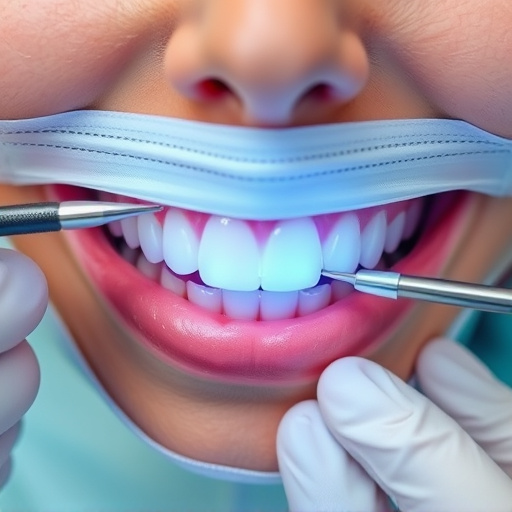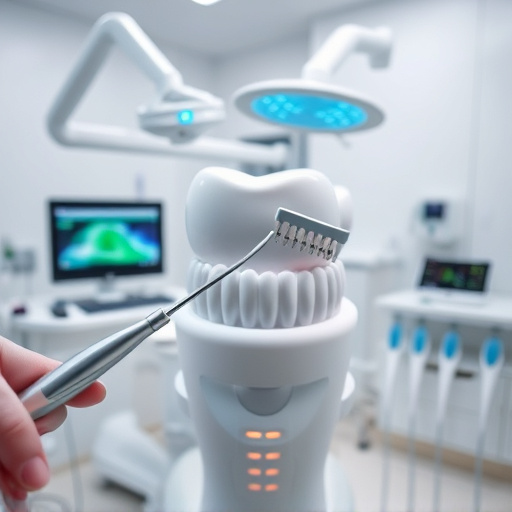Oral health assessment is key to managing dental implants, detecting early signs of inflammation, bone loss, and peri-implant diseases. This involves examining hard and soft tissues using advanced tools for integration monitoring. Regular assessments enhance implant longevity and aesthetic appeal by enabling proactive intervention before issues worsen, ensuring optimal comprehensive dental care.
Oral health assessment plays a pivotal role in monitoring dental implants, ensuring their longevity and optimal health. This comprehensive evaluation goes beyond visual inspections, delving into crucial factors that impact implant success. By analyzing key components like gum tissue health, bone density, and oral bacteria levels, practitioners can proactively identify potential issues. Regular check-ups not only enhance the durability of dental implants but also provide an opportunity to catch problems early, fostering a vibrant and lasting oral ecosystem.
- Role of Oral Health Assessment in Dental Implant Monitoring
- Key Components of An Effective Oral Health Evaluation
- Benefits of Regular Check-ups for Implant Longevity and Health
Role of Oral Health Assessment in Dental Implant Monitoring

Oral health assessment plays a pivotal role in monitoring dental implants, serving as a cornerstone of comprehensive dental care. This meticulous process involves a detailed examination of the oral cavity, focusing on both hard and soft tissues surrounding the implants. By utilizing advanced diagnostic tools and techniques, general dentistry professionals can detect any signs of inflammation, bone loss, or peri-implant diseases early on. Early intervention is crucial, as it not only enhances the longevity of dental implants but also preserves overall oral health.
Through regular oral health assessments, dentists gain valuable insights into the implant’s integration with the jawbone and gums, enabling them to identify potential issues before they escalate. This proactive approach ensures patients receive the best possible comprehensive dental care, maintaining the structural integrity and aesthetic appeal of their dental implants over the long term.
Key Components of An Effective Oral Health Evaluation

An effective oral health assessment is a multifaceted process that involves several key components. Firstly, a comprehensive examination of the teeth, gums, and mouth structures is crucial. This includes visual inspection for any signs of decay, gum disease, or abnormalities in tooth position and alignment. Dentists should also gather patient history to understand any prior dental procedures like tooth extractions or existing conditions that might impact oral health.
Additionally, assessing the functionality and stability of dental implants requires specialized techniques. This may involve measuring bone density around implants, evaluating gum tissue health, and checking for signs of inflammation. Regular monitoring through periodic oral health assessments is essential to ensure the long-term success of dental implants, especially when compared to traditional restorations in a family dentistry setting.
Benefits of Regular Check-ups for Implant Longevity and Health

Regular oral health assessments play a pivotal role in ensuring the longevity and optimal health of dental implants. These comprehensive check-ups allow dentists to monitor any signs of inflammation, infection, or bone loss around the implant site. Early detection is key; addressing issues promptly can prevent small problems from escalating into more complex and costly treatments. For example, regular x-rays and visual examinations can reveal if the bone integrating with the implant is healing correctly.
Moreover, oral health assessments contribute to the overall maintenance of dental implants, promoting their durability and functionality. By combining these check-ups with proper at-home hygiene practices, including brushing and flossing, individuals can expect a reduced risk of complications associated with tooth repair or the need for clear aligners. Such proactive care is essential in the field of general dentistry, ensuring that patients enjoy the benefits of their dental implants for many years to come.
Oral health assessment plays a pivotal role in monitoring dental implants, ensuring their longevity and optimal health. By regularly evaluating key components like gum tissue health, bone density, and oral bacteria levels, professionals can proactively address potential issues. This proactive approach, centered around comprehensive oral health assessments, not only enhances the durability of dental implants but also improves patient comfort and overall oral well-being.














